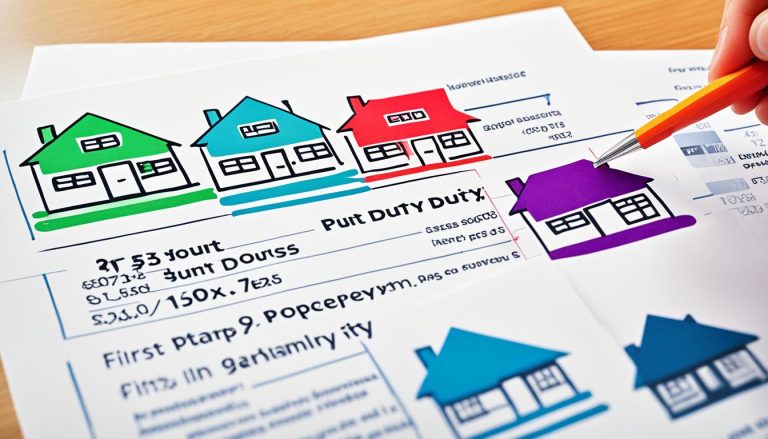Are you a proud owner of a second home in the UK? Perhaps it’s your getaway retreat or an investment property. While these homes can offer joy and financial benefits, they also come with tax implications that might catch you off guard. Capital Gains Tax (CGT) is something every property owner should consider when selling their second home. The good news is that there are ways to navigate this complex landscape and potentially minimize your tax burden.
If you’re curious about how to avoid capital gains tax on second homes in the UK, you’ve come to the right place! Dive into our comprehensive guide where we’ll explore everything from what CGT entails to tips for effectively managing your sale strategy. Your journey towards smarter property ownership starts here!
What is Capital Gains Tax (CGT)?

Capital Gains Tax (CGT) is a tax levied on the profit made from selling certain assets. In the UK, this typically applies to properties that aren’t your main residence.
When you sell an asset for more than you paid for it, the difference is considered your capital gain. This gain can be subject to taxation, depending on various factors like how long you’ve owned the property and your income level.
It’s important to note that CGT isn’t charged on the full amount of money received from a sale. Instead, it’s calculated based on your profits after deducting any allowable costs and exemptions.
Understanding CGT can help you make informed decisions when buying or selling property. Knowing what triggers this tax ensures you’re prepared for financial implications down the line.
Capital Gains Tax on Second Homes in the UK
Capital Gains Tax (CGT) applies when you sell or dispose of an asset, including second homes. In the UK, this tax can significantly impact your profits from selling a property that’s not your primary residence.
When you sell a second home for more than you bought it, the profit is subject to CGT. This means that any increase in value since your purchase could be taxed at rates dependent on your income level.
For many homeowners, this can come as a surprise. Understanding how CGT works is crucial before making any sale decisions. Many people overlook their potential liabilities and fail to plan accordingly.
Moreover, different rules apply based on whether the property was rented out or used solely for personal enjoyment. Each situation requires careful consideration to understand the financial implications fully.
Exemptions and Relief Options for CGT

When it comes to capital gains tax, several exemptions and relief options can help ease the burden. One notable exemption is Private Residence Relief. This applies if you’ve lived in your second home for a period while also using it as your main residence.
Another option is lettings relief. If you’ve rented out part of your property while also living there, you may qualify for this relief under certain conditions. It’s designed to reduce CGT on any gain when selling.
Also worth exploring is the annual exempt amount, which allows individuals to make a certain level of profit without incurring tax. For assets sold in a tax year that stays below this threshold, there’s no CGT at all.
Understanding these exemptions and reliefs can significantly impact how much you owe when selling your second home. It’s essential to carefully assess each situation to maximize potential savings.
How to Avoid Capital Gains Tax on Second Homes UK?

To avoid capital gains tax on your second home in the UK, consider timing your sale strategically. If you’re planning to sell, do it when your income is lower. This might push you into a lower tax bracket.
Another option is to transform the property into your primary residence for a period before selling. This can help qualify for Private Residence Relief, reducing or eliminating CGT.
Maximizing allowable expenses also plays a crucial role. Keep detailed records of improvements and maintenance costs; these can be deducted from the profits.
Utilizing tax-free allowances effectively is key too. Every individual has an annual exempt amount that can offset some gains.
If possible, explore ownership structures like joint ownership with a spouse or partner. Each person may benefit from their own allowance when selling the property later on.
How Much is Capital Gains Tax on a Second Home?
When selling a second home in the UK, understanding Capital Gains Tax (CGT) is crucial. The rate you pay depends on your income tax bracket.
Higher rate taxpayers face a significant 28% CGT on profits from their property sales. This can substantially reduce your overall profit after sale expenses are accounted for.
In contrast, basic rate taxpayers enjoy a lower CGT of 18%. This difference can influence financial planning when considering the sale of an asset.
It’s essential to carefully calculate potential gains and consider how they affect your tax position. Knowing where you stand financially helps in making informed decisions about timing and strategy when selling.
Considerations for Timing the Sale of a Second Home
Timing can significantly impact your capital gains tax liability when selling a second home. Market conditions fluctuate, and understanding these trends is crucial for maximizing profits.
Consider selling during a seller’s market. Higher demand often leads to better sale prices, which could offset potential taxes. Conversely, in a buyer’s market, you may want to wait until conditions improve.
Seasonality also plays a role. For example, spring and summer typically see increased activity in the housing market. Families often prefer to move before the school year begins, making this an ideal time for sellers.
Additionally, keep personal circumstances in mind. If you’re planning significant renovations or updates that could enhance property value, it may be wise to delay the sale until those improvements are complete.
Monitor changes in tax laws or any government incentives that might affect your decision on when to sell. Staying informed can provide strategic advantages as you navigate the process.
Alternatives to Owning a Second Home

Owning a second home can be appealing, but it’s not the only option to enjoy a getaway. Consider holiday rentals instead. Platforms like Airbnb or Vrbo allow you to experience different locations without the long-term commitment of property ownership.
Another alternative is timeshares. They provide access to vacation properties for a fraction of the cost and are often situated in desirable destinations. This means you share expenses with others while still enjoying quality time away.
Co-ownership is also gaining traction. Team up with friends or family members to buy property together, allowing everyone access while splitting costs and responsibilities.
If you’re open to flexibility, explore house-swapping services that let you trade homes temporarily. You’ll save on accommodation fees while immersing yourself in new environments.
These alternatives offer diverse experiences without the burden of managing an additional property full-time.
Importance of Seeking Professional Advice
Navigating the complexities of capital gains tax can be daunting. Seeking professional advice is crucial for effective planning.
Tax advisors and financial planners can provide tailored strategies to minimize your liability. They understand the intricacies of tax laws, including any recent changes that might affect you.
Moreover, professionals can help identify specific exemptions or relief options available for second homes. This insight may save substantial amounts in taxes, turning a potential burden into an opportunity.
Additionally, a knowledgeable advisor will guide you through timing considerations when selling your property. Their experience is invaluable in making informed decisions that align with your financial goals.
With ever-changing regulations and market dynamics, having expert support makes all the difference. Ensuring compliance while optimizing benefits requires more than just basic knowledge; it calls for expertise to navigate effectively.
Other Taxes to Consider When Selling a Second Home
When selling a second home, it’s essential to be aware of other taxes that may come into play. Beyond capital gains tax, you might encounter inheritance tax if the property is passed down or estate duty upon death.
Stamp duty land tax could also apply if you’re buying another property simultaneously. This can add significant costs to your transaction.
Additionally, consider income tax on rental earnings if the second home was previously let out. The profits from renting can lead to unexpected liabilities.
Council tax changes after sale must not be overlooked either. If you’ve owned multiple properties, local councils may reassess your liability based on ownership duration and usage.
These financial implications emphasize the importance of thorough planning when navigating the sale of a second home in the UK.
Conclusion
Selling a second home can lead to significant financial implications, particularly when it comes to Capital Gains Tax. Understanding the nuances of CGT is essential for any property owner. By exploring exemptions and relief options, timing your sale effectively, and considering alternatives to ownership, you can navigate these waters more successfully.
Remember that tax laws are complex and frequently changing. Seeking professional advice is invaluable in this area as it allows you to tailor strategies specifically suited to your circumstances. Additionally, be aware of other taxes that may come into play during the sale process—these can further impact your overall financial outcome.
The strategies discussed not only help reduce or eliminate CGT but also provide clarity on managing assets efficiently within the UK’s regulatory framework. Taking informed steps will enable better decisions regarding your second home investment while minimizing tax liabilities.
FAQ
When does CGT apply to second homes in the UK?
CGT applies when you sell or dispose of a second home in the UK for more than its purchase price. The profit made from the sale may be subject to taxation, depending on various factors, including how long you’ve owned the property and your income level.
Why is seeking professional advice important when selling a second home?
Professional advisors can provide tailored strategies to minimize your tax liability, help identify applicable exemptions or reliefs, and guide you through the timing of your sale. Their expertise is invaluable in navigating complex tax laws and ensuring compliance.
Are there other taxes to consider when selling a second home?
Yes, other taxes may apply, such as inheritance tax if the property is passed down, stamp duty land tax if purchasing another property, income tax on rental earnings, and potential changes in council tax based on ownership duration and usage.






